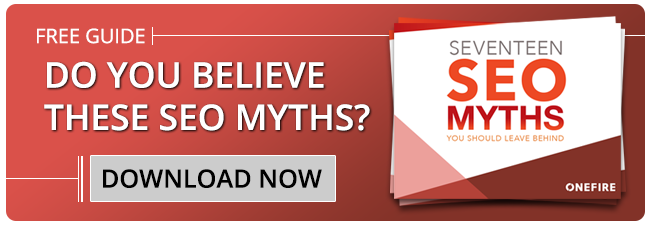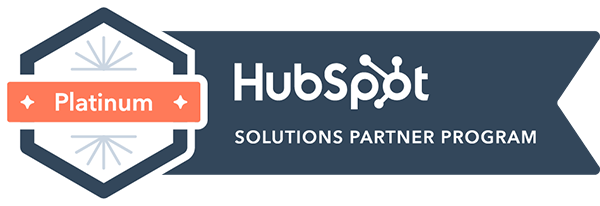
By now you've probably heard how vital content is to gaining new clients. Inbound marketing brings people to you because they found value in something you created, like a blog post, infographic or video. Creating top-notch content is absolutely worth the time and effort you put into it; once it's out there, it acts like a salesperson for your brand or business.
But your content can't begin to do all of that amazing work for you if no one can find it to begin with. You need to come up in online searches, and preferably as one of the first options people will find. This is your search engine optimization (SEO.) Whether your content is on Google, YouTube or Pinterest, just remember: content impacts SEO.
Content Marketing and SEO are Partners
Don't think you can separate one or the other; improving your content will help your SEO, and vice versa. Content marketing isn't the new SEO. Rather, you use your content to help boost your search engine rankings.
Using SEO in your Content Marketing
So now that you know content marketing and SEO go hand in hand, how do you use that pairing in a practical way? For starters, look at keywords. Keywords are critical for your rankings because that's how people are searching for you. Consider the client when you're considering your keyword options.
Let's say you run a bakery in Chicago. Your website analytics tell you that people have found your website by typing in "Chicago bakery," "Chicago wedding cake" and "Chicago cupcakes." Those would be excellent keywords to use in your content. From there, you could base entire blog posts around those keywords. That's why SEO and content can't be separated. You need your SEO keywords to help people find your content, and you need content to give your keywords a platform. Your goal is to add those keywords to your content as naturally as possible. That does not mean you shove as many keywords in your content as possible, because that will work against you - search engines are sophisticated, and they don't like over-optimization. Stick to a few mentions of it throughout the text, make sure it's included in your title and headings, and you'll already be on your way to showing up in searches.
Link your Content
Search engines love links. Used effectively, links can absolutely boost your SEO. This is a two-fold approach. First, you should include links in your own content. Link back to other posts you've done, link to videos you've created, and link to other people's content that would be valuable to your audience. "Sharing is caring" is especially true in content marketing. But again, overdoing it is not a great idea. You'll turn readers off if every other word is linking somewhere. Make sure the links you include are useful.
The next piece of this puzzle is other site linking back to you. That is SEO gold. But how do you get others to link to your content? The easiest way to do that is to create killer content. If you put out content that people find very valuable, they're much more willing to link to or share your content on their own platform. See? Content impacts SEO, so they come full circle. Put effort into both and you'll see an increase in your overall rankings.




